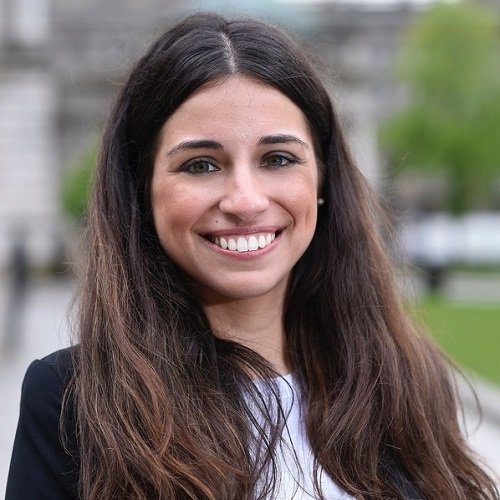Tell us a bit about yourself...
My name is Tania and I’m a PhD Law student at The Strathclyde Centre for Law, Crime and Justice (CLCJ).
I grew up in Lisbon, Portugal, and moved to Scotland in 2013 to study a Masters in Criminal Justice.
My background is in law and I’ve always had an interest in criminal law and criminal justice. After graduating in 2011, I worked as a trainee lawyer for a couple of years but did not find the work stimulating, even when I was working in areas that sparked my interest. I was also doing a masters in forensic science, which was broad enough to cover some of my interests but wasn’t exactly what wanted to specialise in, so I starting looking into other options abroad.
Moving to Scotland was a big step – especially at that age with no support- but it was one of the best decisions I’ve ever made.
What initially sparked your interest in Criminal Justice?
The interest has always been there, not only due to my own personal experiences but also because I’ve always been curious and passionate about crime and social justice. In fact, my desire to study law developed initially from my interest in the justice system.
You studied the LLM Criminal Justice and Penal Change, what made you want to progress on to a PhD?
Perhaps a combination of different things: my experiences as a postgraduate student, my interest in restorative justice and my masters thesis.
The LLM in Criminal Justice and Penal Change helped me explore my interests further. I was pleasantly surprised that the course covered such a range of topics, including Criminal Justice & Penal Decision-Making, Childhood & Crime, Surveillance, Technology & Control, and Restorative Justice.
I became particularly interested in restorative justice and wrote my thesis on this and sexual violence. This initial interest became a passion and I decided to explore it further.
Tell us about the nature of your research
My research investigates the emotional dynamics of restorative conferences, including how facilitators perceive and manage emotions in these encounters. Many of the claims surrounding restorative justice and its success have been grounded in assumptions about healing, restoration and the cathartic power of emotion. However, very little is known about how emotions are managed in these encounters or why restorative conferences have the capacity to be ‘emotionally transformative’.
What’s the Strathclyde research community like?
My experiences as a PhD and a masters student at Strathclyde have been different but extremely positive. The PhD journey can be a bit lonely (particularly in the middle of a pandemic) but there numerous reading groups and opportunities to engage in discussion with other students.
What are the Strathclyde facilities like?
The facilities are good. A lot of work has been done in recent years so many are new.
The library is great – it is spacious and has fantastic, extensive bibliographic collections which are also available online. There are quiet floors but also group meeting rooms which is great for group discussions.
Tell us about the support from your supervisor and the wider Strathclyde team
I’ve been lucky to have had the opportunity to choose my supervisors, so I chose the best! They have been a source of intellectual inspiration as well as giving fantastic guidance, advice, and support whenever needed. It is rare to find people in academia that let your ideas flourish and your voice be heard - I have been very lucky to find supervisors who possess all these traits.
I have also been extremely impressed with the responsiveness, engagement and helpful attitude of the wider Strathclyde team.
What would be your advice for people considering a PhD?
Choose your topic wisely. The PhD is a marathon that can be overwhelming and lonely at times. Make sure you’re passionate about your research.
Everyone’s experience/research is different – don’t compare your journey to others.
Build practices and routines that make sense for you and your project.
Choose your supervisors wisely – they will be your main source of support and, very often, your compass.
Be patient and trust your intuition – the PhD journey is full of decisions. Most of them come down to choosing what matches your interests and fits your project.
